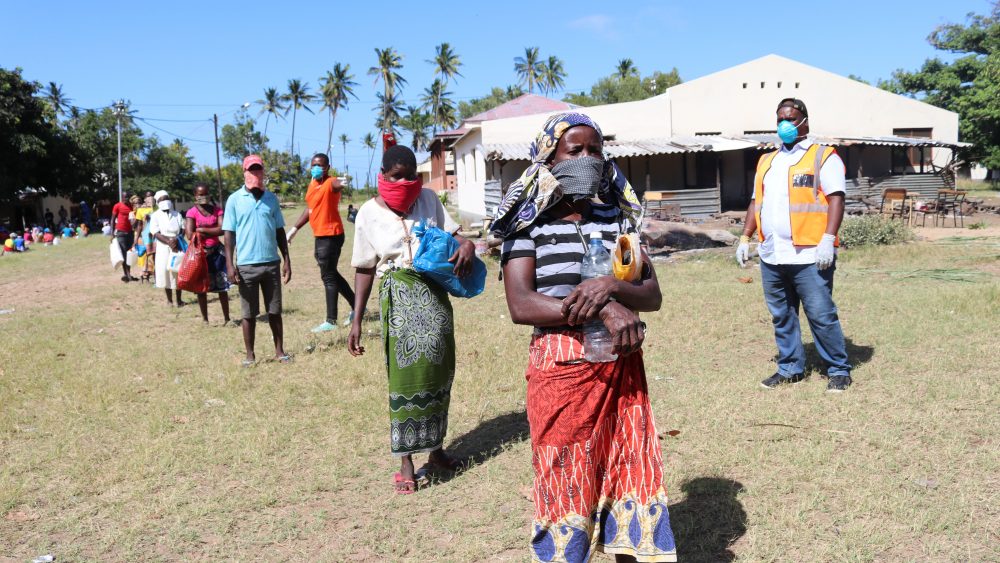Church leaders key to tackling COVID-19 in vulnerable communities
Churches join in to help the world’s most vulnerable
Faith leaders are being co-opted to help curb the spread of COVID-19 as the next wave of the pandemic threatens to bring starvation and violence to some of the world’s most vulnerable communities.
Global aid agency WorldVision is partnering with 400,000 faith leaders and 220,000 community health workers in 72 countries to mobilise prevention and response initiatives among people who often have to choose between facing infection or starving.
In what it admits is a stretch target, the agency is seeking to raise $US350 million ($A548 million) over the next 12-18 months to promote health initiatives, such as setting up public hand-washing stations and distributing hand sanitiser, along with clear public messaging about protective measures, and scaling up its food distribution programs.
“In many of these countries there’s a lot of inaccurate information that is being spread about what is this virus and how does it spread and what you should do about it,” World Vision Australia’s acting head of Field Impact, Susan Anderson, told Eternity.
“So it’s very important to have trusted voices like World Vision giving people the best and the most up-to-date information.
“We’ve really ramped up our mobilisation of faith leaders. We’ve got some fabulous WhatsApp groups where we’re co-opting faith leaders with up-to-date information so that they can help spread accurate information about what communities can do.”

A boy with a food parcel in Armenia.
As governments in Australia, the UK and US look to revive economies as the peak of the pandemic passes, World Vision is calling on the international community to look outwards to ensure that progress made in reversing child mortality is not undone.
World Vision International President and CEO, Andrew Morley, said the number of children dying from preventable causes, such as poverty, hunger, and disease, has more than halved since 1990.
“Unless the international community prioritises countries which are at greatest long-term risk from the impacts of COVID-19, this pandemic will leave millions of girls and boys poorer, hungrier, sicker, less educated and exposed to more violence and abuse.
“We now challenge governments, individuals, corporations and all those who love and care for children to do much more to limit the spread of COVID-19 in low-income countries and safeguard children from the devastating aftershocks the virus could create.”

A woman washes her hands in Mozambique
The need for trusted sources of information in low-income countries was reinforced by Michael Soderling, co-catalyst for Health for All Nations of the Lausanne Movement. Since 1974, Lausanne Movement has been seeking to bring the gospel to the whole world.
After a recent webinar involving 223 participants across the globe, Soderling told Eternity: “We came to the conclusion that a lot of what we were asking the world to do was just not reasonable for the poorest and the most vulnerable communities.”
“In many of these communities, it’s the pastors, it’s the elders that will be trusted.” – Michael Soderling
“One of the biggest problems is that these communities typically are located in very low-trust cultures. There is very little trust of anyone outside of your direct family circle. If you’re in a rural part of Mozambique, for example, you don’t trust your government.
“So you’re trying to impose restrictions on people who don’t trust the information that they’re being given. Then the government can talk till they’re blue in the face and the people are going to do what they want – unless the government is run in a way that allows for suppression, violent suppression of people that break the rules, and they do that.”
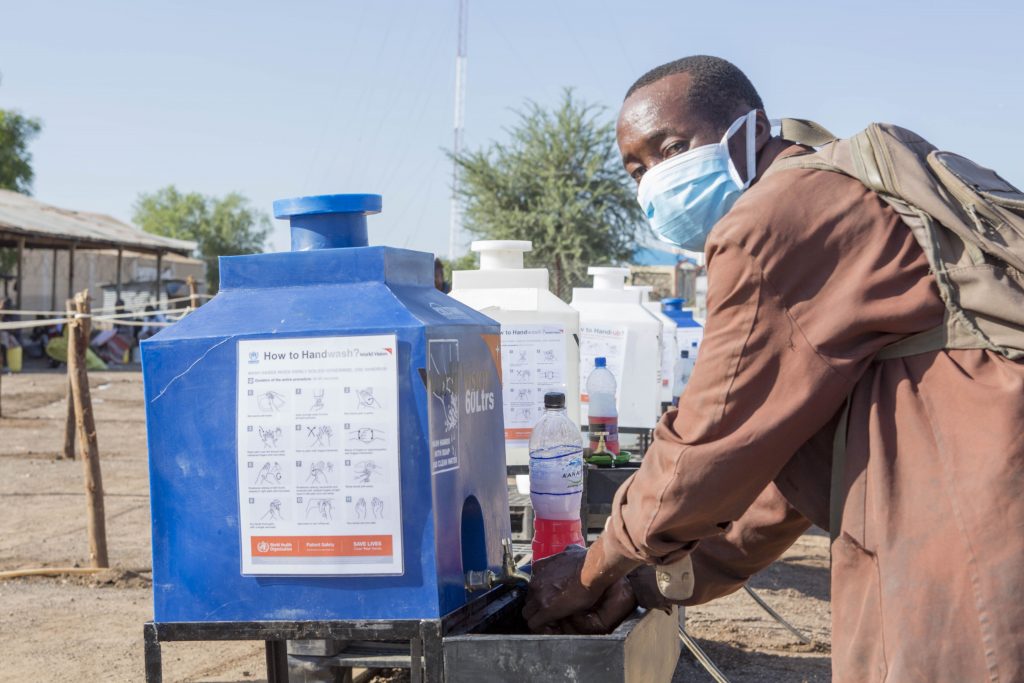
A man washes his hands at Kakuma Refugee Camp in northwest Kenya World Vision
The webinar participants – from World Vision, World Evangelical Alliance and Micah Global – identified three essentials to get the message through to the most needy: clear messaging, trusted relationships and truth.
“You have to function within trusted relationships, and that’s where the Church comes in,” he said.
“In many of these communities, it’s the pastors, it’s the elders that will be trusted. If they are the trusted agent, they need to have truth, so we have to give them the facts … So, a clear message of truth through trusted relationships. And I think that’s a very important role for the Church and the church leaders to play.”
“More people that have died from breaking the rules and being punished than from the virus itself.” – Michael Soderling
Even so, he said, it makes no sense to tell vulnerable people, who live day to day based on the money they earn from one day to the next, not to go to work.
“I don’t see how that makes sense to them. And it’s not enforceable unless you’re willing to go to violent measures to suppress that. And I think that that’s probably going on more than is reported.”
“I have contacts that tell me that dead bodies are being brought in all the time, and it’s not being made known by the authorities, by the government.”
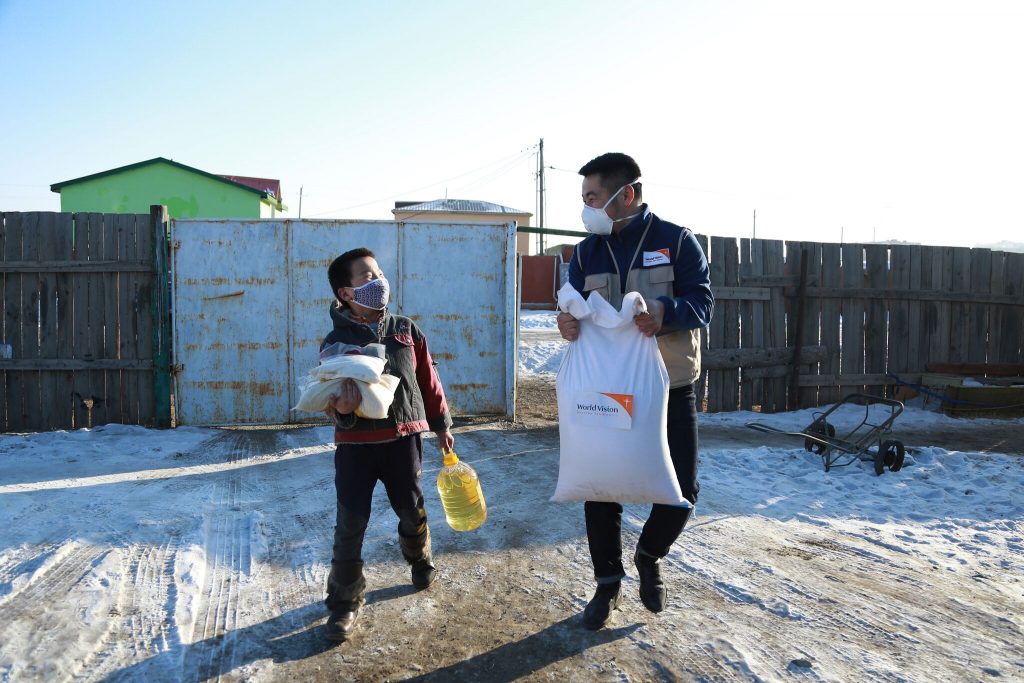
Food distribution in Mongolia World Vision
He said he had viewed a video of a food truck going into Kibera – one of the biggest slums in Nairobi – and being mobbed by the people because they were starving.
“There’s been violence against people that break the rules. My friends in Nairobi commented that there’s more people that have died from breaking the rules and being punished than from the virus itself.”
“On top of this is right now … Africa is dealing with locust plagues and droughts.” – Susan Anderson
Anderson said World Vision would also include scaling up its food distribution programs because the pandemic had also led to disruptions to food supplies.
“Layered on top of this is right now in terms of Africa, is dealing with locust plagues and droughts and other things that actually impact their food supply quite significantly.
“So it’s a compounding sort of situation, which often leads to the interruption of programs that we all run where we might be delivering food or providing micronutrients to vulnerable populations and all of the sudden that isn’t possible to do.”
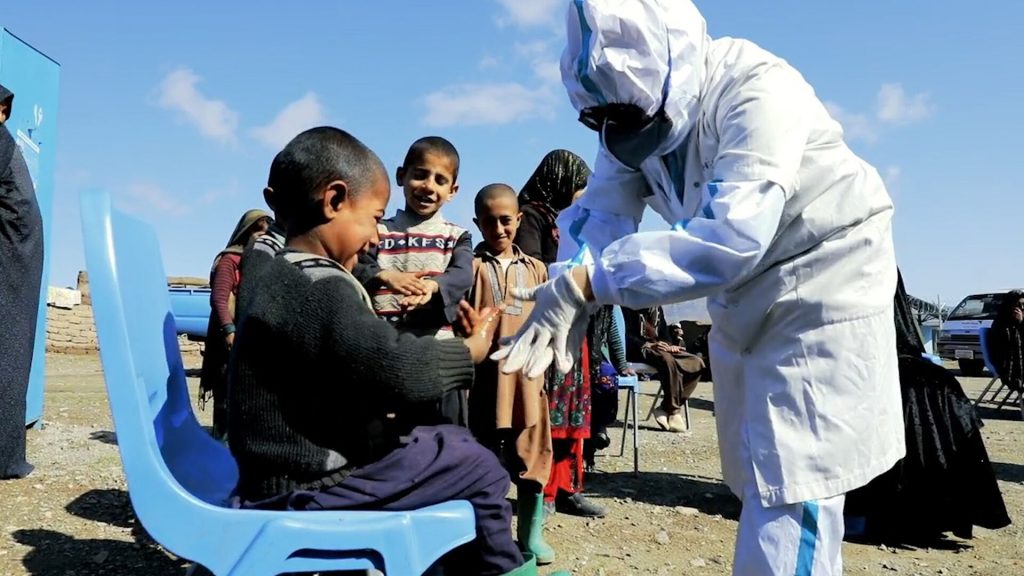
Hand-washing in Afghanistan World Vision
Food distribution will also be supplemented by cash transfers to communities where markets are still operating and financial support for small farmers’ groups to keep up the food supply into communities.
“And then that army of community health workers that I mentioned, they’re obviously being scaled up to go into communities, but they’re doing interesting things like sending nutrition information via text messaging rather than their usual sort of face-to-face or even teaching a family how to perhaps assess their children’s nutritional status.”
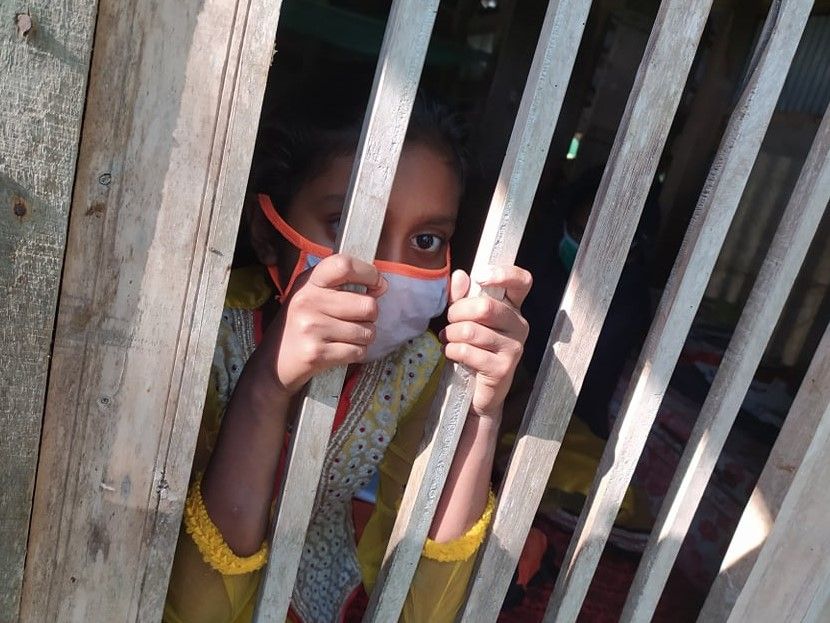
A girl wears a mask in Bangladesh World Vision
She challenged the popular notion that “we’re all in it together,” saying that does not work in the global context.
“We’re not all in this together. We’re not all equal. We don’t all have access to soap and running water and amazing health systems. And so we all need to be good global citizens around how do we support the most vulnerable who are going to not move through this in 12 months to two years, like our government’s talking about.
“This is going to be with them for generations.” – Susan Anderson
“This is going to be with them for generations. We could lose decades of development gains that we have made in these communities. Livelihoods will be lost. Family members will be lost. Health systems will be broken.
“Unfortunately, it is about to hit the developing nations very hard, and I’m hoping that Australians will really start to shift their gaze and their hearts towards what is going to be quite a devastating picture of the impact of COVID-19.”
Email This Story
Why not send this to a friend?
